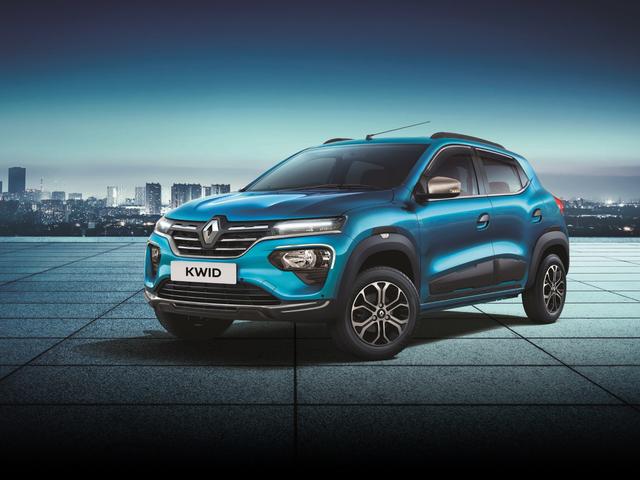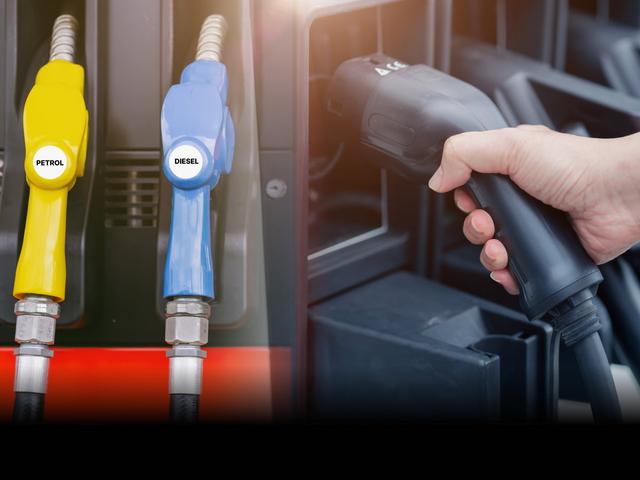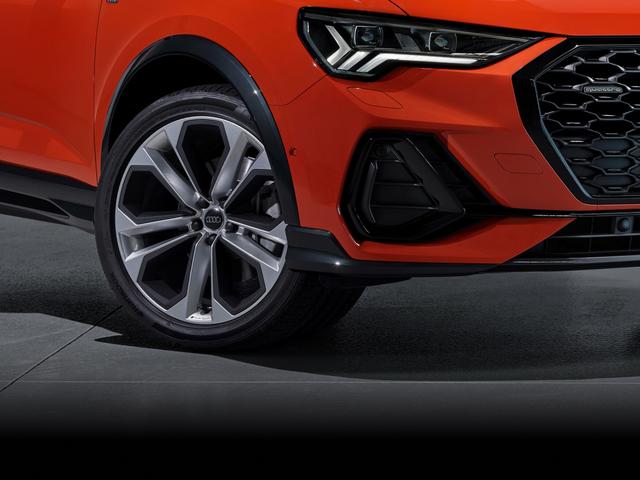


Blink blink !
Its almost here
.jpg&w=3840&q=50)
.jpg&w=750&q=50)
New Vehicle Registration: How to register a new vehicle
- 1New vehicle registration serves as proof of ownership and is valid for 15 years
- 2Registration for a new car can be done by yourself, through a dealer or an agent
- 3Online application for a new vehicle can be done but a visit to an RTO is required
Before you get into the real joy of ownership of your new car, there’s the matter of establishing legal ownership of your new car. A new vehicle registration is required to legally drive your car on Indian roads, as it essentially serves as an Aadhar card for your car as prescribed under the Indian Motor Vehicles act. It’s also important to keep in mind that a new vehicle’s registration fees, including associated taxes, add a significant amount to a new vehicle’s ex-showroom price. This is why you see a difference between ex-showroom prices and on-road prices — the latter includes vehicle insurance, vehicle registration fees, road taxes and the like.
If you’re wondering what the new vehicle registration details are, you’ve come to the right place. In this guide, we’ll cover everything from how to register a new vehicle yourself, what car registration documents you’ll need, what the associated vehicle registration fees are and even what rules you should follow for new vehicle number plates. In most cases, these points are taken care of by the dealership you have purchased your car from. If you plan on registering your car in a different state than the one you purchased it in and you don’t want to go through an agent, this guide is for you.
What is a new vehicle registration?
Like we said, the first step towards legal ownership of your new car is getting it registered with the Regional Transport Office (RTO) authorities. A new vehicle registration is a unique identification number for your car. It establishes legal ownership and at the end of the process your new car is assigned a vehicle registration certificate or RC. The RC contains the vehicle’s owners details, and vehicle-specific details including its registration number as is required to be displayed on the car’s number plate.
The vehicle registration is undertaken after physical inspection at an RTO. It is during this process that the vehicle’s physical VIN and engine number are matched against the vehicle’s documents. This is to safeguard against any future complications, such as, in the case of vehicle theft so as to have a record of the car’s chassis and engine numbers.
As the new vehicle registration process can sometimes take a while to be processed, a temporary registration can be issued to allow the vehicle to legally drive on Indian roads in the interim. The temporary registration is issued for a period of 30 days during which it must be converted to a permanent registration. That said, a temporary registration can also be extended for a maximum of two times (before penalties are levied) in the wait for a permanent vehicle registration.
A vehicle’s registration is valid for 15 years from the date of issue, with certain exceptions in the state of Delhi for diesel vehicles. A vehicle’s registration number stays the same across the life of the vehicle, including vehicle ownership transfer. The only circumstance where the registration number may change is under an RC transfer, where registration is transferred to a new owner in a different state and the vehicle is re-registered.
How to register a new vehicle in India?
.jpg)
A new vehicle is usually registered at the RTO by the dealership on behalf of the new owner. This can also be done by the owner itself, or through an agent. An owner may have to undertake new vehicle registration by himself if the vehicle is purchased in another state than which it is meant to be registered in. In some cases, the dealer provides the owner with a temporary registration and it is then up to the owner to undertake the permanent registration process. These are the steps to register a new vehicle in India:
- Take your new vehicle to your local RTO
- Carry all necessary documents and fill out the required RTO forms
- Pay the required new vehicle registration costs, as well as road taxes
- New vehicle inspection at RTO by Inspector of Motor Vehicles (IMV) as verification of car details in the car’s documents (such as VIN/chassis number, engine number)
New vehicle registration certificate will be posted to you on your registered address after a period of time for processing
What are the car registration documents required for a new vehicle?
The list of registration documents required for a new vehicle can seem a little overwhelming but a step-by-step approach can help alleviate the stress of collecting these documents. Whether a new vehicle registration is undertaken by the dealer, an agent or yourself, these are the documents required for car registration:
- Form 20 or vehicle registration application form obtained from Parivahan Sewa website or at RTO
- Form 21 or sale certificate issued by the dealer as proof of ownership
- Invoice of the new vehicle provided by the dealer
- Customs Clearance Certificate in case the vehicle is imported
- Form 51 or vehicle insurance certificate with active insurance that covers third-party liability at a minimum
- Form 22 or roadworthiness certificate obtained through the Parivahan Sewa website
- Proof of owner’s address such as a photocopy of Aadhar card, voter ID, passport, or utility bills (such as electricity/gas bill)
- Proof of owner’s identity such as a photocopy of Aadhar card, PAN card, passport or driving licence
- Temporary registration number (TRN) shared by dealer
- Pollution Under Control Certificate (PUCC), which can be obtained by visiting a registered emissions test centre or through the VAHAN portal of Parivahan Sewa
- Chassis and engine number pencil print
- Road tax challan, which can be obtained by paying the road tax through the Parivahan Sewa website online
- Two passport-sized photographs of the vehicle owner
- PAN card of the vehicle’s owner if the vehicle costs more than ₹4 lakh
Form 34, in case the vehicle was purchased under loan
Vehicle registration forms
Out of the above documents required for a new vehicle registration, there are registration forms that can be acquired either through the Parivahan Sewa website or at the RTO itself. The full list of vehicle registration forms can be quite exhaustive so we’ve listed a few of the important ones to be aware of below:
- Form 20: Application for registration of a motor vehicle
- Form 20B: Application for extension of temporary registration’s time period
- Form 21: Sale Certificate
- Form 22: Certificate of roadworthiness
- Form 51: Certificate of insurance
Form 34: Application for making an entry into an agreement of loan hypothecation
What are Vehicle Registration fees?
Compared to the road taxes on a new vehicle, which are dependent on the value of the vehicle, category and location, vehicle registration fees are a one-time fixed fee irrespective of value. Vehicle registration fees are based on whether the vehicle is locally manufactured or an import, size and type of vehicle. The vehicle registration fees are as follows:
| Category | Registration fees |
| Light motor vehicle (LMV) | ₹600 (non-transport), ₹1,000 (transport) |
| Medium passenger vehicle | ₹ 1,000 |
| Heavy passenger vehicle | ₹ 1,500 |
| Imported motor vehicle | ₹ 5,000 |
| Motorcycle | ₹ 300 |
| Imported motorcycle | ₹ 2,500 |
How to check the registration status of a new vehicle?
With the introduction of the Parivahan web portal it’s much easier to check on the registration status of a new vehicle as it can be done online via a simple two-step process.
- Visit the ‘Application Status’ section of the Parivahan web portal.
Enter the application number and click on ‘View Report’ to view your application status.
Rules for new vehicle number plates in India
As per the guidelines of the Ministry of Road, Highways and Transport (MoRTH), all new vehicles must be fitted with high-security registration plates or HSRP. These are registration plates that are electronically linked to the vehicle, to increase security for owners and the authorities and offer a new channel for vehicle data collection.
HSRP number plates are aluminium plates with hot-stamped registration numbers branded with a special film with the word INDIA at 45-degrees, Ashoka Chakra hologram and a unique 10-digit PIN laser-etched into the plate. These plates are then riveted to the body of the car and can’t be stolen or removed easily without risking damage to the number plate itself. These number plates can only be installed at the RTO or authorised dealerships to reduce the chances of duplication.
Join the official CARS24 auto community, CLUTCH, and be a part of discussions, get access to news and more.
Frequently Asked Questions
Expand all

Blink blink !
Its almost here













.jpg&w=640&q=75)









Blink blink !
Its almost here

.jpg&w=828&q=75)
-(1).jpg&w=828&q=75)








